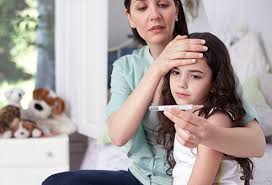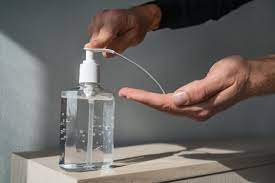Anti-microbials, which our bodies are exposed to on a regular basis have been recognised as disease-causing agents. Anti-microbials can create a negative impact on your health by triggering inflammation, disrupting gut microbiome, weakening your immune function and worsening oxidative stress.
The recent ban on the use of anti-microbials like triclocarban (TCC) and triclosan (TCS) from personal care products was expected to bring about some improvement in the incidence of associated diseases.
However, not all the replacement antimicrobial compounds have shown to offer the desired level of safety. As a result, antimicrobials continue to be a major cause of concern that must be addressed to lower the incidence of chronic diseases.
The toxic impact of anti-microbials on health
Antimicrobials are compounds commonly added during the manufacturing of personal care products such as soaps, shampoos, hand sanitizers or wipes, antiseptic hand wash, makeup and other cosmetics, clothing, furniture, kitchenware, and toys to prevent bacterial contamination. Lately the use of disinfectants have dominated our world… but the question we need to ask is what exactly are we putting on our skin (whether it’s a hand sanitiser) or an antimicrobial product of another sort.
Research studies have revealed that exposure to anti-microbials like Triclosan (TCS) and Triclocarban (TCC) could also result in reproductive impairment and lifespan reduction through oxidative stress-linked damage to the healthy tissues.
Therefore, the use of TCS and TCC was replaced by other antimicrobials like benzethonium chloride (BEC), benzalkonium chloride (BAC), and chloroxylenol (CX).
However, the latest studies have revealed that even these replacement anti-microbials are not any safer than the banned antimicrobials. Benzethonium chloride, benzalkonium chloride, and chloroxylenol not only cause a variable extent of neurotoxicity but also create disruptions in the body’s physiological mechanisms.
This is why it’s important to investigate the impact of these replacement anti-microbials on healthy tissues and the long-term implications of the use of personal care products containing them.
How do replacement antimicrobials affect our health?
Disruptions in gut microbiome
 Exposure to banned anti-microbials like triclocarban and triclosan as well as the replacement anti-microbials like benzethonium chloride, benzalkonium chloride, and chloroxylenol can cause significant disruptions in the gut and oral microbiome.
Exposure to banned anti-microbials like triclocarban and triclosan as well as the replacement anti-microbials like benzethonium chloride, benzalkonium chloride, and chloroxylenol can cause significant disruptions in the gut and oral microbiome.
These anti-microbials destroy the strains of both harmful and healthy bacteria. The destruction of beneficial bacteria could impair gut integrity due to which the body’s ability to fight inflammation and oxidative stress would be reduced.
This can increase your risk of inflammatory bowel disease, leaky gut syndrome, SIBO (small intestinal bacterial overgrowth), autoimmune disorders, repeated infections, and even cancer.
Neurotoxicity and Neuroinflammation
Anti-microbials can cause damage to the nerves by causing neurotoxicity. They can also trigger inflammation at the ends of the nerves thus reducing their ability to carry signals to and from the brain and different parts of the body.
Hormonal disruptions
Anti-microbials might affect the secretion of hormones and increase the risk of related conditions. Anti-microbials can make the immune system weaker as the immune cells have a reduced ability to fight inflammation. Chronic inflammation in the adrenal glands and other organs that produce hormones can result in an imbalance in the level of hormones.
This could increase your risk of infertility, depression, kidney diseases, heart diseases, and hormone-related cancers.
Metabolic dysfunctions
Antimicrobials like triclocarban, triclosan, benzethonium chloride, benzalkonium chloride, and chloroxylenol may interfere with the body’s metabolic processes.
The adverse impact of anti-microbials on the hormonal balance can worsen metabolic dysfunctions further due to the changes in the secretion of insulin, glucagon, calcitonin, thyroxine, and other hormones that play a role in metabolic activities.
This can put you at risk of diabetes, osteoporosis, hypothyroidism, hyperthyroidism, and other metabolic conditions.
Weakened immune system
 Our immune system is designed to fight bacteria, viruses and any type of pathogens that doesn’t belong. Since we live in a microbial world we are constantly exposed to these triggers which means our body has a fast and effective response. In a situation of extreme clean environment, our immune system in a way finds no harmful entity to work against. And therefore, it results in its weaker performance. Studies show if a human is exposed to such clean conditions early on life, it contributes to a weaker defence at a later stage in life.
Our immune system is designed to fight bacteria, viruses and any type of pathogens that doesn’t belong. Since we live in a microbial world we are constantly exposed to these triggers which means our body has a fast and effective response. In a situation of extreme clean environment, our immune system in a way finds no harmful entity to work against. And therefore, it results in its weaker performance. Studies show if a human is exposed to such clean conditions early on life, it contributes to a weaker defence at a later stage in life.
Antibiotic resistance
Antibiotics are helpful against the growth of bacteria in body. But what if your body develops a resistance against it? Or in turn develops bacteria that’s resistant to antibiotics? Yes, that could be a possible threat of using hand sanitizers.
Finding alternative products
Washing your hands with plain soap and running water is one of the most important steps to avoid the risk of infections. And remember to read labels – it’s important to ensure that Triclosan (TCS) and Triclocarban (TCC), benzethonium chloride (BEC), benzalkonium chloride (BAC), and chloroxylenol (CX) are NOT present in any products you purchase. You can select natural organic products with “natural” anti-microbial such as tea tree oil, eucalyptus, lemon oil, aloe vera, lavender, thyme oil, oregano oil and clove oil.
Conclusion
Being aware of the risks associated with the use of personal care products containing anti-microbials and replacing them with safer alternatives is essential for avoiding a range of chronic diseases caused due to inflammation, oxidative stress, hormonal imbalance, and metabolic dysfunctions.
Article courtesy: Deborah Freudenmann BHSc

